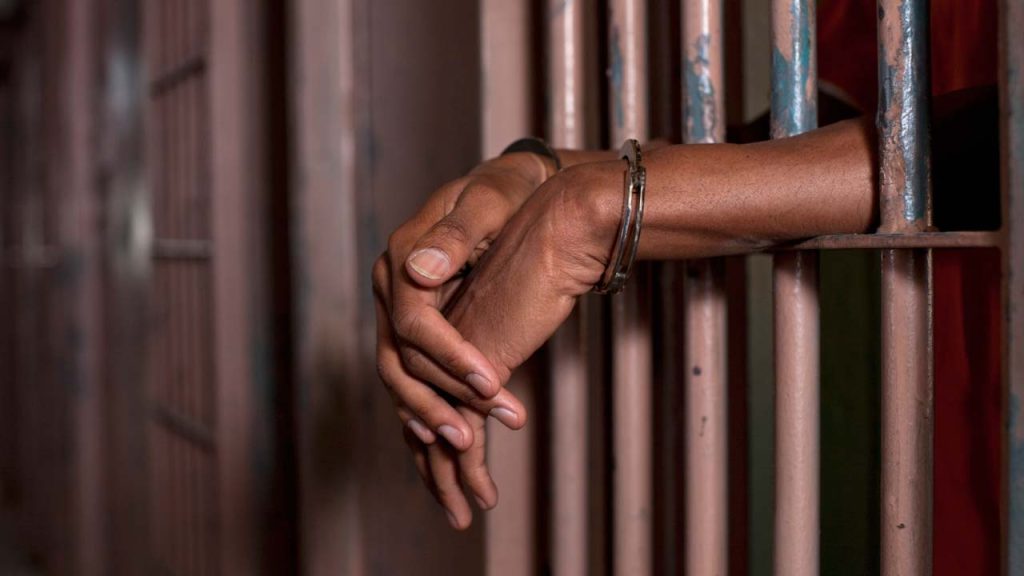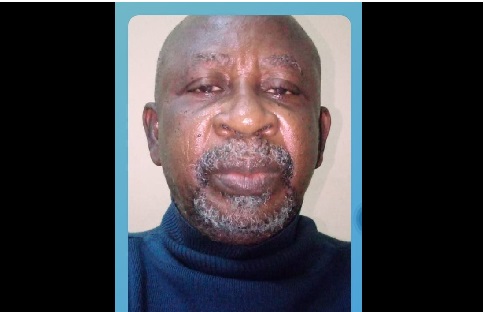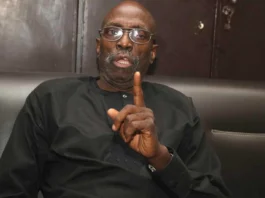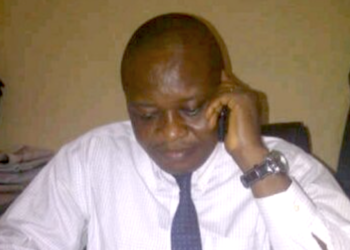By
Nze David N. Ugwu
A Presidency in Reverse Gear
When a President pardons a convict, it is supposed to be the final punctuation mark in a considered process — a solemn exercise of constitutional discretion grounded in mercy, justice, and national interest. It is not supposed to be a game of “now you see it, now you don’t.” Yet, Nigeria’s political theatre under President Bola Ahmed Tinubu has produced another script that could only be described as tragicomedy — a pardon that morphed into an unpardon.

In a country where policy summersaults are the order of the day, where government actions are often guided by expediency rather than principle, this “pardon-to-unpardon” episode stands out as an embarrassing spectacle. It calls into question not just the President’s judgment, but the institutional competence of his entire governance machinery.
To pardon is presidential. To unpardon is unprecedented.
The Prerogative of Mercy and Its Moral Weight
The Nigerian Constitution grants the President the prerogative of mercy — the power to pardon, commute, or remit sentences. But this power is not ornamental. It is one of the most sacred instruments of the presidency, designed to temper justice with compassion and uphold the moral conscience of the state.
Historically, presidential pardon has been used sparingly, often to heal wounds, promote reconciliation, or correct judicial excesses. It is not a tool for political patronage or elite indulgence. Each pardon reflects the President’s moral compass and understanding of justice.
But what does it say when a President pardons individuals and then hurriedly retracts it under public outrage? It suggests that the decision was not guided by principle or fact, but by political misjudgment and reactionary panic. It speaks of a government that acts before thinking, and thinks only after being embarrassed.
The Anatomy of a Flip-Flop

Let’s break it down. The President, exercising his constitutional discretion, approved a list of convicts to be pardoned. That list reportedly went through the appropriate advisory channels — the Council of State and the Advisory Committee on Prerogative of Mercy. Yet, after public outcry, the same Presidency allegedly “reviewed” the list and reversed some pardons.
This action creates a legal and moral paradox. Can a President unpardon a pardon? Once mercy is granted, can it be withdrawn? Constitutionally, the prerogative of mercy is final. To reverse it suggests that the President’s first decision was ill-informed or impulsive. Either way, it is a self-indictment of poor process and governance confusion.
It’s like watching a pilot who takes off confidently, realizes mid-air he’s on the wrong route, and decides to turn back — without consulting air control.
The Symbolism of Confusion
The symbolism of this episode is damaging. Leadership, especially at the presidential level, is as much about perception as it is about action. A President’s decision — especially one as solemn as a pardon — should project authority, moral clarity, and confidence.
But when a President pardons today and unpardons tomorrow, he projects the opposite: uncertainty, disorganization, and weak institutional coordination.
In the eyes of Nigerians, it deepens the growing perception of a presidency that often appears tone-deaf to public sentiment, reactive rather than proactive, and disconnected from the ethical weight of its own decisions.
This is not merely a blunder. It is an indictment of process — a failure of governance due diligence.
Who Advises the President?
Behind every presidential misstep lies a crisis of counsel. The question Nigerians should be asking is: who advises the President? Who vetted that list? Who signed off on the names before it reached the President’s table?
The presidency is not a one-man show. It is a complex institution manned by advisers, secretaries, legal experts, and moral gatekeepers. The fact that such an error slipped through these layers reveals either a lack of institutional coordination or a dangerous culture of sycophancy — where people say “yes” to everything the President wants, no matter how ill-conceived.
This incident exposes an inner circle more concerned with political loyalty than institutional integrity.
The Culture of Impunity and the Loss of Public Trust
Every government action has ripple effects on public trust. In Nigeria’s fragile democracy, where citizens already doubt the moral credibility of leadership, the pardon-to-unpardon drama deepens cynicism.
Citizens now ask: were the pardoned individuals chosen based on merit, justice, or political connection? Was the pardon meant to reward allies, recycle cronies, or cleanse political sins?
When government decisions appear arbitrary, it reinforces the notion that Nigeria operates not by rule of law but by rule of power. And when power is seen to oscillate without logic, it breeds disillusionment — the very oxygen of national instability.
The President’s Image Problem
President Tinubu, since assuming office, has been struggling with perception — of being decisive but often misdirected, of acting fast but thinking shallow.
This episode feeds into that narrative. It paints him as a leader who moves first and reflects later. It suggests a man surrounded by advisers who are either afraid to tell him the truth or incompetent to know it.
A pardon that is later withdrawn is not a correction — it is an embarrassment. It’s a public confession that the first decision was wrong. And in leadership, perception of error is sometimes more damaging than the error itself.
Lessons in Governance and Responsibility
The lesson here is clear: governance must be grounded in process, not impulse. Presidential discretion, especially on moral matters like pardon, must be handled with the highest degree of scrutiny, consultation, and foresight.
Before any list of pardon reaches the President’s desk, it should undergo rigorous vetting — legal, moral, and public interest tests. The Advisory Committee on Prerogative of Mercy must not be a rubber stamp. The Council of State must assert its constitutional conscience.
The President, ultimately, must bear responsibility for his signature. Leadership is not a rehearsal; every decision echoes through the corridors of history.
Should There Be Consequences?
Yes, there should be consequences — not just political, but institutional.
First, there should be an inquiry into how the list was compiled and approved. Were there procedural breaches? Were unqualified individuals smuggled in? Were political pressures involved?
Second, those responsible for the embarrassment — whether ministers, secretaries, or committee members — should face disciplinary review.
Third, the Presidency must issue a transparent statement clarifying the constitutional implications of the reversal. Nigerians deserve to know: can mercy be withdrawn?
Without accountability, this will become yet another episode in Nigeria’s long tradition of impunity and governance absurdity.
A Call for Presidential Introspection
Ultimately, this episode should serve as a mirror for President Tinubu. A President’s strength is not in never making mistakes, but in learning from them. But to learn, one must first admit error and reform the system that caused it.
The “pardon-to-unpardon” saga is more than a headline — it is a metaphor for the larger disarray in governance. It shows how a government can lose moral balance when decisions are made without depth, reflection, or institutional rigor.
President Tinubu must realize that leadership is not about perpetual motion; it is about purposeful direction. Nigeria needs a President who knows before he acts, not one who acts before he knows.
If this embarrassing policy flip-flop teaches the Villa anything, it should be that governance by impulse is governance by error. Mercy may be divine, but confusion is not.
Conclusion:
The pardon that turned into an unpardon is more than a constitutional misadventure — it is a moral blunder. It exposes a presidency struggling to balance politics with principle. Until Nigeria’s leadership learns to think before acting, we will continue to oscillate between policy and parody, between pardon and unpardon.
Nze David N. Ugwu is the Managing Consultant of Knowledge Research Consult. He could be reached at [email protected] or +2348037269333.





